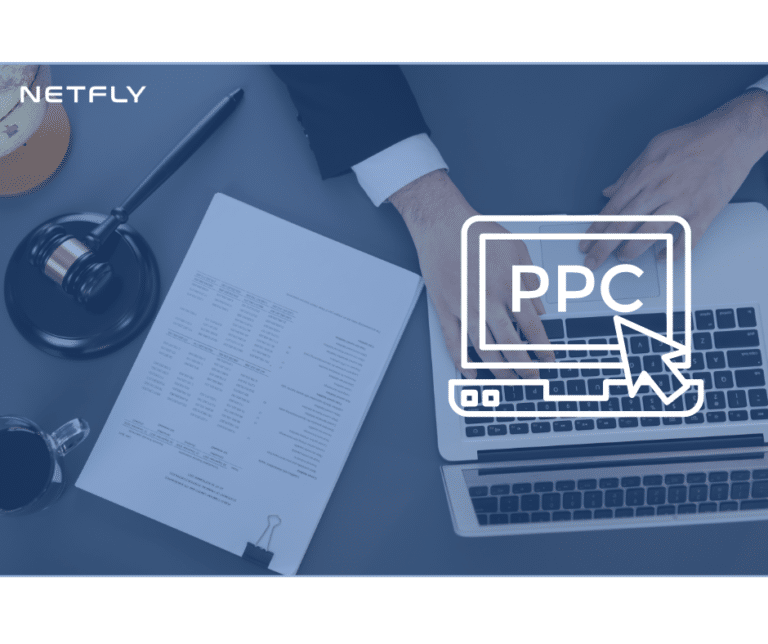If you’re looking to master digital marketing for your law firm, starting with a clear understanding of your target audience is essential. Craft client personas using real data to tailor your strategies effectively. Once you’ve nailed down who you’re speaking to, a professional, responsive website becomes your digital headquarters. But that’s just the beginning. To truly engage potential clients, you’ll need to harness the power of SEO, content marketing, and social media. Wondering how to make all these elements work together seamlessly? There’s a blueprint you can’t afford to miss.
Key Takeaways
- Develop detailed client personas using real data to tailor marketing strategies and effectively reach target audiences.
- Build a responsive, professional website optimized for user experience and fast load times to reduce bounce rates.
- Utilize SEO techniques, including technical SEO and keyword research, to improve site visibility and local search rankings.
- Consistently create and share high-quality, engaging content that addresses common legal questions and showcases expertise.
- Leverage social media platforms, focusing on LinkedIn, Facebook, and Twitter, for professional networking and audience engagement.
Understanding Your Target Audience
To effectively customize your digital marketing campaigns, you need to thoroughly explore and comprehend the specific needs and behaviors of your target audience. This begins with developing detailed client personas, which are semi-fictional representations of your ideal clients based on real data and strategic insights. By understanding who your clients are, what they need, and how they behave, you can tailor your marketing efforts to resonate more deeply and drive higher engagement.
Start by gathering data from various sources like client interviews, surveys, and web analytics. Analyze this data to identify common characteristics such as demographics, legal needs, and communication preferences. Once you have this information, segment your audience into distinct groups with shared traits. This process, known as audience segmentation, enables you to create highly targeted marketing messages for each group.
For example, if you identify a segment of small business owners frequently seeking legal advice on contract disputes, you can craft content and offers specifically addressing these issues. Use data-driven insights to determine the best platforms and times to reach this segment, ensuring your efforts are both efficient and effective.
Incorporating client personas and audience segmentation into your strategy allows you to predict future behaviors and trends. This predictive capability helps in adjusting your campaigns dynamically, ensuring you stay ahead of your competition. Leveraging these insights will not only enhance your marketing ROI but also build stronger, more personalized relationships with your clients. By focusing on your target audience’s specific needs and behaviors, you can strategically position your law firm as a trusted authority in the legal landscape.
Building a Professional Website
A well-crafted, professional website serves as the cornerstone of your law firm’s digital marketing strategy, enhancing your online presence and credibility. It’s not just about having a site; it’s about having one that’s strategically designed to attract, engage, and convert visitors. To achieve this, focus on responsive design and user experience.
Responsive design guarantees your website looks and functions well on all devices, from desktops to smartphones. According to a 2023 study by Statista, over 50% of global website traffic comes from mobile devices. If your site isn’t mobile-friendly, you risk alienating a significant portion of potential clients. Implement a responsive design to provide a seamless experience regardless of the device used.
User experience (UX) is another critical component. A well-structured site that’s easy to navigate can significantly reduce bounce rates. Research from Google indicates that 53% of mobile users abandon sites that take longer than three seconds to load. Speed is essential, so optimize your website’s performance by compressing images, leveraging browser caching, and utilizing fast web hosting services.
Content is king, but presentation is queen. Ensure your website’s design is clean, professional, and aligned with your brand identity. Use high-quality images and concise, compelling copy to communicate your firm’s expertise and values. Integrate clear call-to-action (CTA) buttons to guide visitors towards scheduling consultations or contacting your firm.
Leveraging SEO Techniques
Mastering SEO techniques is crucial for guaranteeing your law firm’s website ranks high on search engine results pages, driving organic traffic and potential clients to your practice. Start by focusing on technical SEO, which involves optimizing your website’s backend to improve its crawlability and indexability by search engines. Make sure your site has a clean URL structure, fast loading times, and mobile responsiveness. Use schema markup to help search engines understand your content better, which can enhance your visibility in search results.
Incorporating local citations is another critical strategy. Local citations are mentions of your law firm’s name, address, and phone number (NAP) on other websites, like local business directories, legal directories, and review sites. Consistent and accurate local citations enhance your local SEO, making it easier for potential clients in your area to find you. Tools like Moz Local and Yext can help you manage and optimize your local citations efficiently.
Keyword research is a cornerstone of effective SEO. Utilize tools like Ahrefs or SEMrush to identify high-volume, low-competition keywords relevant to your legal practice. Focus on long-tail keywords that potential clients might use when searching for specific legal services. Integrate these keywords naturally into your website content, meta descriptions, and title tags.
Don’t forget about analytics. Use Google Analytics and Google Search Console to monitor your site’s performance and identify areas for improvement. Regularly review metrics like organic traffic, bounce rate, and average session duration to refine your SEO strategy.
Utilizing Content Marketing
Content marketing is a strategic tool that can position your law firm as an authority in your practice area while attracting and retaining potential clients. To build trust and showcase your expertise, start by developing high-quality content that addresses common legal questions and concerns your target audience may have. A well-crafted blog post, whitepaper, or eBook can serve as valuable resources for potential clients seeking legal guidance.
Incorporating client testimonials into your content strategy is essential. Authentic testimonials provide social proof and can greatly influence the decision-making process of potential clients. Highlighting positive client experiences can help establish credibility and demonstrate your firm’s commitment to client satisfaction.
Case studies are another powerful content marketing element. By presenting detailed accounts of how your firm successfully resolved complex legal issues, you offer tangible evidence of your expertise and problem-solving capabilities. Make sure to outline the challenges, the strategic approach you adopted, and the favorable outcomes achieved. This not only illustrates your proficiency but also helps potential clients visualize how you might handle their unique situations.
To maximize the impact of your content marketing efforts, focus on data-driven strategies. Analyze metrics such as page views, time spent on page, and conversion rates to understand what type of content resonates most with your audience. Use this data to refine your content topics and formats continuously.
Additionally, consider creating a content calendar to ensure consistent and timely publication of your materials. This strategic planning can help maintain audience engagement and keep your firm top-of-mind for potential clients.
Engaging With Social Media
Harnessing social media platforms strategically can greatly enhance your law firm’s visibility and client engagement. To achieve this, you need a well-thought-out approach to platform selection and community engagement, ensuring your efforts yield maximum results.
Start by identifying the social media platforms most frequented by your target audience. LinkedIn, for example, is a pivotal tool for connecting with professionals and establishing your firm as a thought leader in the legal industry. Facebook can help you reach a broader demographic, while Twitter is ideal for sharing timely updates and engaging in industry conversations. Instagram, though less conventional for law firms, can humanize your brand through behind-the-scenes content and client testimonials.
Data-driven insights should guide your platform selection. Analyze where your potential clients spend their time online and tailor your strategies accordingly. Tools like Google Analytics and social media insights can provide you with valuable demographic data and engagement metrics.
Community engagement is essential for building relationships and fostering loyalty. Respond promptly to comments and messages, and participate in relevant legal discussions. Share content that addresses common client concerns, showcases your expertise, and highlights your firm’s successes. Hosting live Q&A sessions or webinars on platforms like Facebook Live or LinkedIn Events can also boost engagement and demonstrate your commitment to client education.
Consistency is key. Develop a content calendar to ensure regular posting and maintain a cohesive brand voice across all platforms. Monitor your performance regularly, using KPIs such as engagement rates, follower growth, and conversion metrics to refine your strategy. By focusing on strategic platform selection and active community engagement, you can effectively leverage social media to grow your law firm’s online presence.
Implementing PPC Campaigns
When you’re ready to boost your law firm’s online visibility and drive targeted traffic, implementing Pay-Per-Click (PPC) campaigns can be an extremely effective strategy. By leveraging PPC, you can place your advertisements at the top of search engine results, ensuring potential clients see your services first.
To start, focus on crafting compelling ad copy. Your ad copy should be concise, engaging, and directly address the legal needs of your target audience. Highlight your unique selling points, such as specialized legal expertise or a strong track record of successful cases. Including a clear call-to-action, like ‘Contact Us for a Free Consultation,’ can greatly improve your click-through rate (CTR).
Next, budget allocation is vital. Set a realistic budget that aligns with your firm’s goals and financial capacity. Begin with a smaller budget to test different ad variations and keywords. Use data-driven insights to determine which ads yield the highest ROI. Once you’ve identified the most effective elements, consider increasing your budget to maximize reach and impact.
Keyword selection is another pivotal aspect of your PPC campaigns. Use tools like Google Keyword Planner to identify high-traffic, low-competition keywords relevant to your legal services. Long-tail keywords can often provide better targeting and lower costs.
Additionally, geographical targeting can enhance your campaign’s effectiveness. Focus on regions where your potential clients are most likely to be located. This localizes your efforts, ensuring your ads are seen by those who are more likely to convert into clients.
Monitoring and Analytics
To guarantee that your PPC campaigns are achieving peak performance, it is essential to regularly monitor and analyze key metrics like click-through rates, cost per click, and conversion rates. These metrics offer invaluable insights into your campaign’s effectiveness, helping you make informed decisions and optimize your digital marketing strategy.
Start by tracking performance through tools like Google Analytics and specialized legal marketing software. By doing so, you’ll gain real-time data on how users interact with your ads, which keywords are driving traffic, and how much each click is costing you. This data is instrumental for pinpointing areas where your campaign excels or falls short.
Analyzing data goes beyond mere observation; it involves a strategic approach to interpreting numbers and translating them into actionable steps. For example, if your click-through rate is high but your conversion rate is low, you might need to revisit your landing page design or the relevance of your ad copy. On the other hand, a high cost per click could indicate a need to refine your keyword selection or adjust your bidding strategy.
Regularly scheduled performance reviews are essential. Establish a routine—weekly, bi-weekly, or monthly—to dive deep into your analytics. Use these sessions to identify trends, set benchmarks, and adjust your tactics accordingly. Remember, the digital marketing landscape is fluid, and your strategies should be adaptable.
Ultimately, the goal of monitoring and analytics is to make sure that your PPC campaigns are not just active but effective. By diligently tracking performance and analyzing data, you pave the way for sustained growth and higher ROI for your law firm.
Frequently Asked Questions
How Can Law Firms Effectively Manage Online Reviews and Reputation?
You should implement review monitoring to track feedback and employ strategic response strategies to address concerns promptly. Respond professionally to both positive and negative reviews to enhance your firm’s online reputation and client trust.
What Are the Benefits of Email Marketing for Law Firms?
Email marketing benefits your law firm by keeping clients engaged through client newsletters and case updates. You’ll build trust, demonstrate expertise, and strategically position your firm as a go-to resource, driving client retention and referrals.
How Can Law Firms Use Video Marketing to Attract Clients?
You can attract clients by using video marketing through client testimonials and visual storytelling. Highlight successful cases and satisfied clients. This strategy builds trust and showcases your expertise, making potential clients more likely to choose your firm.
What Are Some Effective Strategies for Local Online Advertising for Law Firms?
Leverage Google Ads to target local keywords and optimize your Local SEO by claiming your Google My Business listing. Use location-based keywords in your ads and content to guarantee your law firm appears in local search results.
How Can Law Firms Ensure Compliance With Digital Marketing Regulations?
To guarantee compliance with digital marketing regulations, you must prioritize data privacy and ethical considerations. Regularly review legal guidelines, train your team on best practices, and use tools that monitor and ensure adherence to these standards.
Conclusion
To master digital marketing for your law firm, you’ll need to deeply understand your target audience, build a professional, SEO-optimized website, and leverage content marketing effectively. Engage with your audience on social media, implement strategic PPC campaigns, and continuously monitor analytics for optimization. By focusing on these data-driven, strategic steps, you’ll not only reach potential clients but also establish your firm as a trusted authority in the digital landscape.










